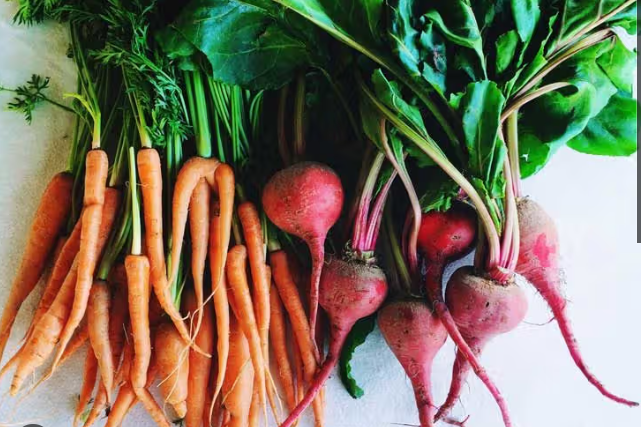1. Healthy Roots Snacks
This business plan outlines the establishment of a Taro Chips manufacturing and distribution company in Pakistan. Taro chips, made from the root vegetable “Arvi” (taro/colocasia esculenta), offer a healthier and unique alternative to conventional potato chips. The growing demand for convenient and healthier snack options in Pakistan, coupled with the underutilization of taro as a commercial crop, presents a significant market opportunity. Our company will focus on producing high-quality, flavorful taro chips, initially targeting health-conscious consumers, schools, and local retail outlets, with a long-term vision for wider distribution.
2. Legal Structure:
Initially, a Sole Proprietorship or Partnership, with potential for Private Limited Company as the business scales.
- Vision: To become the leading provider of healthy and delicious taro chips in Pakistan, promoting sustainable agriculture and contributing to the local economy.
- Mission: To produce premium taro chips using locally sourced, fresh taro, offering a nutritious and appealing snack option to a diverse consumer base.
- Product: Crispy, flavored taro chips. Variations could include:
- Classic Salted
- Spicy (local chili flavors)
- Masala (blend of traditional Pakistani spices)
- Sweet & Salty (unique offering)
- Other innovative flavors based on market research.
- Unique Selling Proposition (USP):
- Healthier Alternative: Taro is rich in dietary fiber, vitamins (B-complex, C), and minerals (potassium, iron, zinc, magnesium). It’s naturally gluten-free and lower in fat and calories compared to some common snacks.
- Unique Taste & Texture: Taro chips offer a distinct nutty flavor and a harder, crunchier texture compared to potato chips, appealing to consumers seeking something new.
- Local Sourcing: Emphasizing the use of locally grown “Arvi” supports local farmers and ensures freshness.
- Nutritional Transparency: Clearly communicating the health benefits on packaging.
3. Healthy Roots Snacks
Market Analysis
- Target Market:
- Health-conscious individuals: Growing segment looking for healthier snack options.
- Children and youth: As an alternative to less nutritious junk food, especially for school canteens.
- Households: For everyday snacking and entertaining.
- Travelers/Commuters: Convenient on-the-go snack.
- Retail outlets: Supermarkets, convenience stores, online grocery platforms.
- Market Size & Trends (Pakistan Savory Snack Market):
- The Pakistan Savory Snack Market is estimated at USD 610.28 million in 2023 and is projected to reach USD 956.79 million by 2028, with a CAGR of 9.41%. This indicates significant growth potential.
- There’s an increasing demand for convenient snacking options and flavorful innovation.
- Consumers are showing a greater inclination toward spicy flavors.
- A shift towards branded grocery chains and online platforms for purchases is evident.
- The prevalence of diabetes is encouraging a switch to savory snacking options.
- Competition:
- Direct Competitors: Established potato chip brands (e.g., Lays, Kurkure), other root vegetable chips (banana, sweet potato, cassava chips – though less common in Pakistan).
- Indirect Competitors: Biscuits, nimco, traditional Pakistani snacks, savory pastries, nuts, and other packaged snacks.
- Competitive Advantage: Our focus on the unique health benefits and distinct flavor profile of taro will differentiate us. Emphasis on natural ingredients and local sourcing can also be a key differentiator.
4. Healthy Roots Snacks
Operations Plan
- Raw Material Sourcing:
- Taro (Arvi): Identify reliable local farmers in regions where taro is cultivated (e.g., Punjab, potentially other provinces where it’s grown as a vegetable). Establish direct relationships for consistent supply and quality control. Taro is grown in Pakistan, though it’s considered an underutilized crop.
- Other Ingredients: High-quality edible oil (sunflower, canola), salt, natural spices, and flavorings.
- Production Process:
- Selection & Cleaning: Select fresh, firm taro corms without defects. Thoroughly wash and peel.
- Slicing: Use a commercial slicer to ensure uniform thin slices (e.g., 3/64 inches thick). Soaking in cool water can prevent sticking.
- Dewatering: Use a dewatering machine or spin dryer to remove excess water, which reduces frying time and oil absorption.
- Frying: Deep fry in hot oil (around 260-320°F or 125-160°C) until crispy. Maintain consistent temperature.
- De-oiling: Use a centrifugal de-oiling machine to remove excess oil for a healthier product.
- Flavoring/Seasoning: Season while warm using a flavoring machine.
- Packaging: Nitrogen-filled packaging to maintain freshness and prolong shelf life. Use attractive, food-grade packaging.
- Equipment:
- Taro washing and peeling machine
- Taro slicing machine
- Dewatering machine
- Commercial fryer (batch or continuous, depending on scale)
- De-oiling machine
- Seasoning/Flavoring machine
- Packaging machine (nitrogen-filled)
- Storage facilities (for raw materials and finished products)
- Location:
- Proximity to raw material suppliers to reduce transportation costs.
- Access to skilled labor.
- Good infrastructure (electricity, water, road access).
- Compliance with local food safety regulations.
- Supply Chain Management: Establish strong relationships with suppliers and distributors to ensure efficient flow of raw materials and finished products.
5. Healthy Roots Snacks
Marketing and Sales Strategy
- Branding: Develop a strong brand identity with a memorable logo, appealing packaging, and a clear message emphasizing health and taste.
- Pricing Strategy: Competitive pricing, considering production costs, competitor pricing, and perceived value (health benefits). Offer different pack sizes to cater to various budgets.
- Distribution Channels:
- Retail: Direct sales to local supermarkets, convenience stores, healthy food stores.
- Wholesale: Supply to distributors who can reach a wider network.
- Online: E-commerce website, partnerships with online grocery platforms (e.g., Daraz, local online stores).
- Institutional Sales: Target schools, colleges, corporate canteens, and potentially airlines/trains for snack options.
- Promotional Activities:
- Sampling/Tastings: Conduct taste tests in high-traffic areas (malls, supermarkets, schools) to introduce the unique flavor.
- Social Media Marketing: Active presence on platforms like Facebook, Instagram, TikTok. High-quality visuals, engaging content highlighting health benefits, recipes, and behind-the-scenes. Run targeted ads.
- Influencer Marketing: Collaborate with local food bloggers, fitness influencers, and health enthusiasts.
- Local Events/Food Festivals: Participate in local events to build brand awareness and connect with customers.
- Promotional Offers: Introductory discounts, bundle offers, loyalty programs.
- Educational Content: Share information about taro’s nutritional value and its benefits.
- Partnerships: Collaborate with gyms, health clinics, or dietitians to endorse the product.
6. Management Team
- [Your Name/Founder]: Outline your experience, skills (e.g., food processing, business management, marketing), and passion for the business.
- Key Personnel (as needed):
- Production Manager (experience in food manufacturing)
- Sales & Marketing Manager
- Quality Control Manager
- Advisors: Consider seeking advice from food industry experts, nutritionists, and business consultants.
7. Financial Plan
- Startup Costs:
- Equipment purchase (machinery, packaging equipment)
- Initial raw material inventory
- Factory/production facility setup and rent
- Licenses and permits
- Marketing and branding expenses
- Working capital
- Funding Request: (If seeking external funding) Specify the amount needed and how it will be utilized.
- Revenue Projections:
- Estimate sales volume based on market research and initial production capacity.
- Forecast average selling price per unit.
- Project monthly/quarterly/annual revenue.
- Cost of Goods Sold (COGS):
- Raw material costs (taro, oil, seasoning)
- Direct labor costs (production staff)
- Manufacturing overheads (utilities, maintenance)
- Operating Expenses:
- Salaries (administrative, sales, marketing)
- Rent
- Utilities
- Marketing and advertising
- Transportation and distribution
- Administrative expenses
- Profitability Analysis:
- Break-even analysis (how many units need to be sold to cover costs)
- Projected profit and loss statements
- Cash flow projections
- Return on Investment (ROI)
8. Regulatory Compliance
- Licenses & Permits:
- Business registration with SECP (Securities and Exchange Commission of Pakistan) or relevant provincial authority.
- Food processing license from the Pakistan Food Authority (PFA) or respective provincial food authorities (e.g., Punjab Food Authority). This will involve adherence to hygiene standards, labeling requirements, and quality control.
- NTN (National Tax Number) registration.
- Any other local municipality permits.
- Food Safety Standards: Adhere to the Pure Food Laws (PFL) of Pakistan (e.g., Punjab Pure Food Rules 2011), which cover food preparation, ingredients, labeling (manufacturing date, expiry date, batch number), storage, and hygiene. Compliance with Pakistan Standards and Quality Control Authority (PSQCA) standards, even if voluntary, can build trust.
9. Chances of Success
The chances of success for a Taro Chips business in Pakistan are promising, driven by several factors:
- Growing Snack Market: The savory snack market in Pakistan is expanding rapidly, indicating a strong consumer appetite for convenient snack options.
- Health and Wellness Trend: There’s a noticeable shift among Pakistani consumers towards healthier eating habits and a desire for nutritious alternatives to traditional junk food. Taro chips fit this trend perfectly.
- Unique Product Offering: Taro chips are not yet widely available in the mainstream Pakistani snack market, offering a first-mover advantage and novelty appeal.
- Nutritional Benefits: The inherent health benefits of taro (fiber, vitamins, minerals, gluten-free) can be a strong marketing point, especially for health-conscious consumers and parents.
- Local Sourcing Potential: Taro (Arvi) is cultivated in Pakistan, ensuring a local and potentially cost-effective raw material supply.
- Versatility of Flavors: Taro chips can be flavored with a variety of local and international tastes, catering to diverse preferences.
- Underutilized Crop: Promoting taro as a commercial crop for chips can also benefit local farmers and contribute to agricultural diversification.
Challenges to Consider and Mitigate:
- Consumer Awareness: Many consumers may not be familiar with taro chips. Extensive marketing and sampling will be needed to educate the market.
- Supply Chain Consistency: Ensuring a consistent supply of good quality taro throughout the year might require robust agricultural partnerships.
- Competition from Established Brands: Large multinational and local snack companies have significant market share and marketing budgets. Differentiating and carving out a niche will be crucial.
- Perception of “New” Food: Some consumers might be hesitant to try a new snack. Overcoming this requires strong branding, positive word-of-mouth, and perhaps initial lower pricing or attractive promotions.
- Capital Investment: Setting up a food processing unit requires significant initial investment in machinery and infrastructure.
- Regulatory Compliance: Navigating and consistently adhering to food safety regulations is essential but can be complex.
Mitigation Strategies for Challenges:
- Aggressive Marketing & Education: Focus on digital campaigns, food tastings, and collaborations to highlight the benefits and taste.
- Farmer Partnerships: Develop long-term contracts with farmers, potentially offering training or incentives to ensure consistent supply and quality.
- Niche Targeting: Initially focus on specific segments (e.g., health food stores, schools) where the unique value proposition resonates most.
- Quality & Consistency: Maintain high product quality and taste consistency to build customer loyalty.
- Phased Expansion: Start with a smaller scale operation and gradually expand as demand grows.
- Expert Consultation: Engage with food safety consultants to ensure full compliance with PFA and PSQCA regulations.
Conclusion:
A Taro Chips business in Pakistan holds significant potential for success, given the growing snack market, increasing health awareness, and the unique appeal of the product. By focusing on quality, effective marketing, and strategic distribution, entrepreneurs can capitalize on this emerging niche and establish a profitable venture while contributing to the local economy and promoting healthier snacking habits.



